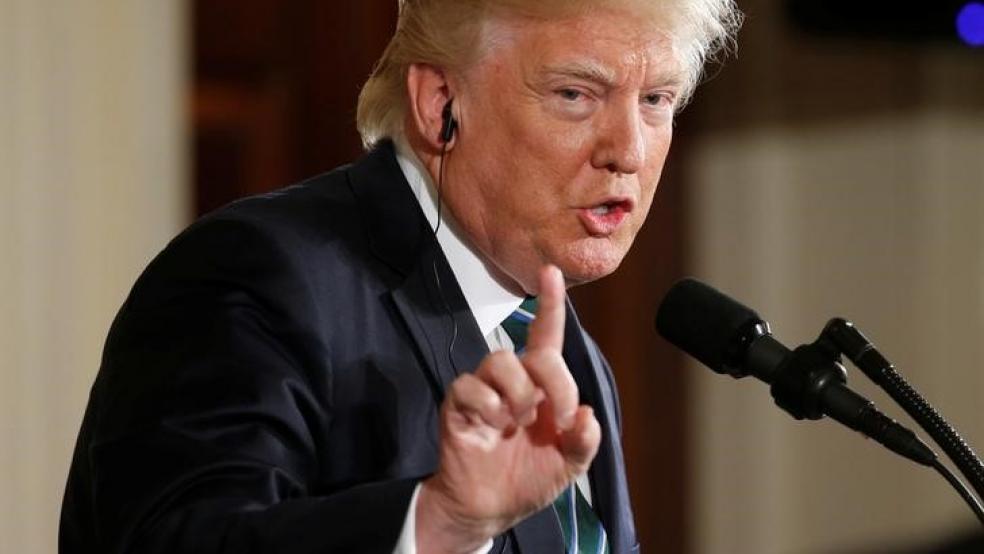U.S. President Donald Trump will push ahead with one of his major campaign pledges Tuesday when he signs an executive order that will overhaul the way foreign workers can work in high-skilled jobs in the U.S.
The order will direct federal agencies to recommend changes to the controversial H-1B temporary visa program, which has previously attracted criticism for disadvantaging American workers by replacing them with cheaper foreign workers.
Related: A Lawsuit Claiming Trump Is Violating the Constitution Just Got Stronger
However, the business community has voiced concerns that the revamp could hamper U.S. companies' ability to attract top talent and, in turn, hurt the president's pro-growth agenda.
"It's not a zero-sum game," Eamon Jubbawy, co-founder of software solution start-up Onfido, told CNBC over the phone Tuesday.
It is thought that new limits on foreign work visas could be especially painful for the technology sector, which has been a keen employer of overseas skilled workers and has spawned new start-ups in the country.
"There's no limit to the number of people who can start a start-up," said Jubbawy, arguing that the move to impose new limits on foreign visas could restrict new talent and prevent new business innovation.
Related: Why Trump Is Afraid to Fire the Consumer Watchdog He Wants Gone
H-1B visas allow 65,000 workers and another 20,000 graduate student workers to enter the U.S. each year. Under the current system, visas are awarded on a lottery basis, which critics say has led to exploitation by firms who use the program to hire lower paid employees.
The overhauls will depend on recommendations made to the president by the Departments of Labour, Justice, State and Homeland Security but it is anticipated that this could shift the system to a merit-based model. It could also result in higher application fees.
In a statement made Monday a senior administration official for the White House said that the order, which is due to be signed by the president during a visit to the headquarters of Snap-On in Kenosha, Wisconsin, will lead to a "total transformation" of the program.
"The Hire American rules that govern many of our visa and guest worker policies have gone unenforced or have been abused to the point of rendered, in some cases, even inoperative.
"80 percent (of H-1B visa-holders) receive less than the median wage, and only 10 percent receive the median wage. And so only 5 percent were categorized at the highest wage tier of the four wage tiers that are in place for the H1B guest worker visa," the spokesperson said.
However, Jubbawy argued that the figures fail to account for the number of visa-holders who go on to start their own businesses and reinvest their earnings.
"A lot of entrepreneurs take a small salary and put the rest back into their businesses. Even if only 10 percent (of start-ups) succeed it is still an overall benefit in terms of job creation and innovation."
The executive order marks President Trump's latest endeavor to enact one of his campaign policies aimed at securing jobs for American citizens.
In the past year, the number of H-1B visa applications has fallen to its lowest level since 2014, according to U.S. Citizenship and Immigration Services. USCIS received 199,000 applications in the year to April 2017 versus 236,000 in the year to April 2016.
This article originally appeared on CNBC. Read more from CNBC:
Self-made millionaires agree that everyone should read this money book




